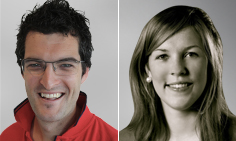A RECENT letter published in the MJA provides a good example of an Australasian college responding to demand from trainees and fellows for increased international engagement.
The authors describe the International Ophthalmology Development Register (IODR), which aims to match the knowledge, skills and experience of those interested in global health ophthalmology with the needs and opportunities of teaching hospitals in the Asia–Pacific region. The letter was written in response to an earlier article arguing for greater integration of global health training with postgraduate medical education.
The engagement of colleges in international aid and development activities is not new. The Royal Australasian College of Surgeons, for example, has a long history of providing surgical services and education programs in developing countries of the Asia–Pacific.
However, colleges have traditionally provided limited opportunities for trainee involvement in global health, despite growing interest among medical students and junior doctors.
There is extensive evidence of this at the undergraduate level, with increasing membership of university global health groups, rising attendance at the annual Australian Medical Students Association Global Health Conference and the MJA’s Global Health Essay Prize, which has a specific category for medical students.
There are also indications of significant interest among prevocational and vocational trainees, who are increasingly accessing global health learning and networking activities such as the Global Health Gateway (an online resource) and Global Health Drinks (an experience-sharing forum in Sydney and Melbourne).
One of the challenges for globally minded trainees is remaining engaged during their resident and registrar years, because of the competing demands of clinical training, exams and domestic commitments.
A new conference — the Global Ideas Forum — is attempting to fill this void by linking those at the beginning of their health career with the global health community. The forum, to be held in Melbourne on 23–25 August, aims to help translate ideas into action by connecting conference participants with field partners, funding organisations and academic institutions.
The response to the inaugural event in 2012 was very positive, reflecting the genuine interest among trainees to tackle threats to global health. This was highlighted in the presentation sessions, when participants showed the outcomes of their research and project work. Featured initiatives included the Water Well Project, a Victorian program that aims to empower migrant and refugee community groups by improving health literacy.
The recently launched NCDFree campaign provides another example of early-career professionals taking practical action in global health. NCDFree is producing three short films focusing on change-makers in developing countries who are employing innovative strategies to address the growing burden of non-communicable disease.
Most doctors with an interest in this area eventually choose to gain practical experience by undertaking a clinical rotation in a resource-poor environment. However, one of the challenges for trainees and educators involved in global health is ensuring these placements are ethically defensible. Reassuringly, there are now international guidelines to guide doctors and educators in this area.
Although there have always been opportunities for non-specialists to work overseas through agencies such as Médecins Sans Frontières, these have generally been undertaken outside of formal training programs. There is now increasing pressure on colleges to recognise these experiences as part of specialty training.
The IODR provides another positive example of a college facilitating relationships between Australian clinicians with overseas health facilities. It’s imperative that the resulting partnerships are sustainable and mutually beneficial, in order to mitigate the risks of short-term medical missions and “voluntourism”.
While trainees are gaining the knowledge and skills necessary to participate safely and effectively in development programs, organisations such as the Global Health Gateway and the Global Ideas Forum have a key role to play in ensuring they remain engaged with the global health community.
These initiatives need a commitment from health services and education providers to encourage trainee involvement in global health activities.
Dr Rob Mitchell is an emergency registrar at Townsville Hospital and a director of the Global Ideas Forum. Dr Jenny Jamieson is an emergency registrar at Alfred Health, community engagement officer with the Global Health Gateway, and a recently returned field doctor with Médecins Sans Frontières.

 more_vert
more_vert